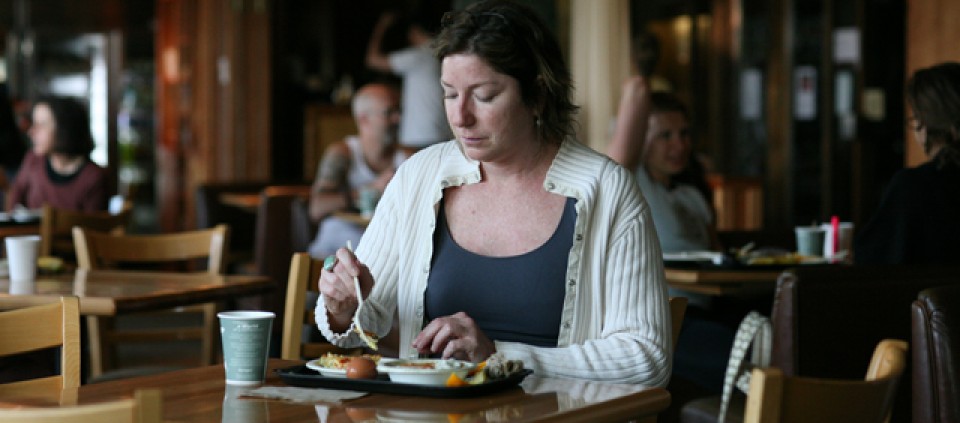Breakfast—Not Just for Champions

Mom was right: It really is the most important meal of the day.
For 20 years, researchers at the University of Minnesota School of Public Health followed 5,000 men and women, looking specifically at their breakfast habits: what they ate and when. The results, presented at the annual meeting of the American Diabetes Association, found that people who ate breakfast every day were significantly less likely to become obese or develop type 2 diabetes than those who ate breakfast three times a week or less. These findings are significant, if not particularly surprising. Haven’t our mothers been telling us to eat our breakfast for years?
“This study affirms everything nutritionists have been talking about,” says John Bagnulo, PhD, MPH, a nutritionist and frequent Kripalu presenter. “When people eat breakfast, and in particular foods that give them less of what I like to call a ‘blood sugar tsunami,’ they make much better food choices throughout the day.” This includes avoiding foods containing sugar, not overdoing it on caffeine, and practicing portion control. “It’s all related to blood sugar,” says John. “If someone misses breakfast, their blood sugar levels come way down. They’re starving by 10:30 or 11:00, and because they haven’t eaten all morning, they crave foods that have a higher glycemic index,” like muffins, breads, candy, or pasta. Then they crash again by 1:00 pm—and look for yet another sugary pick-me-up. Sound familiar?
The University of Minnesota School of Public Health researchers are also looking at the effects of breakfast on mood and cognition in school-aged boys. John predicts the findings will reveal that skipping breakfast or relying exclusively on unhealthful ones—cereal, waffles, bagels—seriously impact a child’s learning and brain development. “Already, it’s a lot to ask a kid to sit through sevenor eight hours of school,” he says. “But then when you throw a lot of sugar or high-glycemic foods at them early in the morning, you make it a lot worse.” Kids lose the ability to focus, while also missing out on an important opportunity to get the nutrientsnecessary to nourish brain development. “Most box cereals—which is what the typical American kid eats for breakfast—are garbage, even the ‘healthier’ ones,” says John. “People tend to be afraid of cholesterol or nut allergies, so they’re giving kids these fillers instead.”
So what to eat tomorrow morning? John’s breakfast recommendations suit both kids and adults and follow two principles: maintaining even blood sugar and maximizing nutrient intake. “What I really want to see is people using breakfast—actually, every meal—to get the nutrition they need to be healthy and thrive throughout the day,” he says. Some ideas:
Smoothies. Try one made with fresh and frozen fruit (a banana will make it thick), almond or rice milk, and perhaps a scoop of nut butter or silken tofu. A handful of spinach or other greens is optional (but ideal!).
Eggs, preferably local and organic. If you don’t have time to cook eggs in the morning, says John, hard-boil them the night before. Eat them plain and chopped up, or with some greens and fruit.
Nut butter and fruit. “One of the best breakfasts I can think of is a nut or seed butter with some fruit,” says John. John considers oatmeal “better than cereal, but not particularly nutrient-dense.”
Find out about upcoming programs with John Bagnulo at Kripalu.
© Kripalu Center for Yoga & Health. All rights reserved. To request permission to reprint, please e-mail editor@kripalu.org.